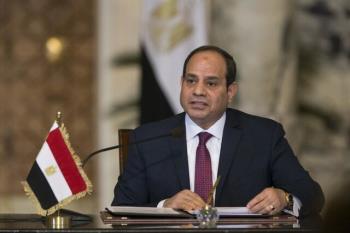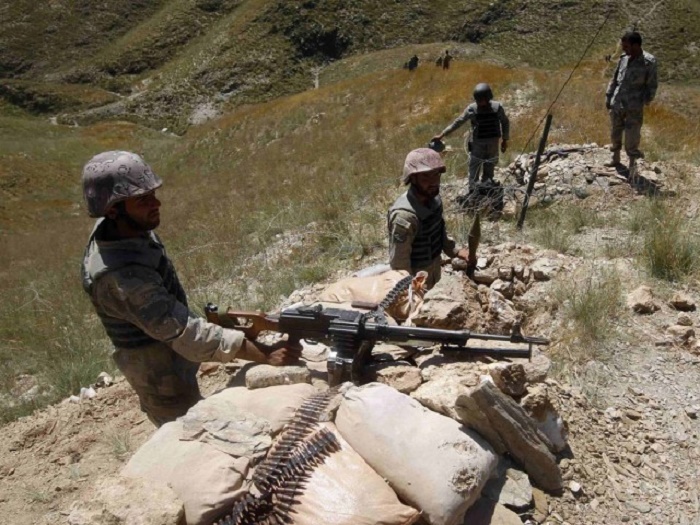Alwaght- Since a month, the Indian-Pakistani border clashes have continued with even more intensity. The news reports suggested that only in past few days, dozens of troops of each sides were killed on the border lines that break Kashmir in two Indian and Pakistani parts. On Tuesday November 8, four forces from two sides were killed as the clashes reignited. There are unconfirmed reports saying that an Indian soldier was taken captive and a couple of others were killed by the Pakistani army’s forces.
Meanwhile, ongoing conflicts on the borders of the two neighbors and killing of several Kashmiri Muslims have pushed Hafez Saeed, the co-founder of Lashkar-e-Taiba militant group and head of Jama'at-ud-Da'wah, to react.
Arguing that the Indian Prime Minister Narendra Modi did his best to suppress the Kashmiri people, Saeed warned that now it was time that mujahideen forces respond to the Indian troops' and New Delhi's “crimes.” Lashkar-e-Taiba's leader continued that the world countries have not recognized the limited attack of India against Pakistan but will remember the restricted operation of the mujahideen in Kashmir.
The militant leader, at the same time, lashed out at the Pakistani PM Nawaz Sharif, and insisted that there was a need to respond to the Indian crimes against the people of Kashmir, vowing that his forces will soon do so.
The Pakistani government restricted its moves only to summoning the Indian ambassador to Islamabad and asking him to give explanation about killing of several Pakistani forces and bringing under fire the Pakistani border areas.
To bring in spotlight the remarks of Hafez Saeed, it must first be taken into consideration that in past few days the border clashes between Indian and Pakistani forces saw a new intensification and entered in a worrisome stage.
The deep-rooted differences between India and Pakistan since the beginning of independence of the two countries including disputes over Kashmir, water shares from Indus and Punjab rivers, as well as tight regional and nuclear rivalries have marred any prospects for improvement of their relations. For example, the dispute between them over water shares from the joint rivers are so serious that Pakistan threatened to strike India with nuclear weapons.
With regard to such a record of heated tensions and following Indian security forces' killing of Burhan Wani, the young commander of Kashmir-based Hizbul Mujahideen, during an encounter on July 9, 2016, in Kashmir, the rifts between the two countries have experienced a new levels. The escalations have made the head of one of the hardline Pakistani movements Hafez Saeed who is allegedly backed by Inter-Services Intelligence (ISI), the Pakistani army’s intelligence service, to threaten to launch assaults and kill Indian troops.
Saeed's threats have received large-scale reflections on the Indian media. India’s security officials, in turn, called the situation in Kashmir as “fragile”, adding that in the present time 300 Pakistani militants entered Kashmir to launch sabotaging operations there.
Last month, India in response to a terrorist attack on its army personnel at a military base in Uri, Kashmir that killed at least 21 troops launched a retaliatory operation. New Delhi claimed that its assault managed to target a military base of Pakistani forces. The Indian defense authorities also added that the attack killed at least 35 militants, as well as 9 Pakistani forces.
India argued that Hafez Saeed had been involved in designing and implementing the 2008 terrorist attacks that hit Mumbai, which left over 180 people dead. Lashkar-e-Taiba claimed responsibly for the assault. New Delhi called for handing in Saeed to India. However, Islamabad refused to detain him, though the Indian government offered a 560 million rupees in reward to the Pakistani government once it arrested and delivered the head of Pakistan’s Jama’at-ud-Da’wah. Besides, the US government put $10 million bounty on Saeed.
These rewards are coming while Lashkar-e-Taiba's Saeed, as the key suspect of plotting the 2008 Mumbai attacks, has been living freely in Pakistan and delivering speeches in the country’s circles and gatherings.
What needs to be highlighted about recent events in Kashmir and the border clashes between India and Pakistan is that the border rifts and the activities of the radical groups in Pakistan will not see an end soon. And actually, the Pakistan-based extremist groups' threatening of India on the one hand and massacring of the Kashmiri Muslims under the excuse of fighting the terrorist groups on the other hand are not only illogical and unjustified but also will fuel the tensions between the two countries.
But it should not be forgotten that despite the fact that Hizbul Mujahideen is a terrorist group and blacklisted by India, the US, and Europe, this should not lead to the parties ignoring the rights of the Muslims of Kashmir. They should not be put down under the excuses of secessionism. Perhaps one of the reasons that drives the Western claimants of human rights like the US to turn a blind eye to the Kashmir cause is that it actually bears no profits to the overbearing global powers and Washington looks at New Delhi as a partner in the Indian subcontinent.
The Indian government’s insistence that Kashmir issue is a domestic matter combined with Pakistan’s profit-based view of Kashmir have blocked accurate news from coming out to the world during all these years. At the same time, the regional crises have distracted any media focus on Kashmir cause over the past years.
In such conditions, the violence and conflicts in Kashmir need to be condemned by the international powers. Additionally, India that boasts of being cradle of democracy and pluralism in Asia and even the world should see a need to respect the Kashmiri people’s rights. And Pakistan beside supporting the Kashmiris should halt backing for such groups as Lashkar-e-Taiba.



























